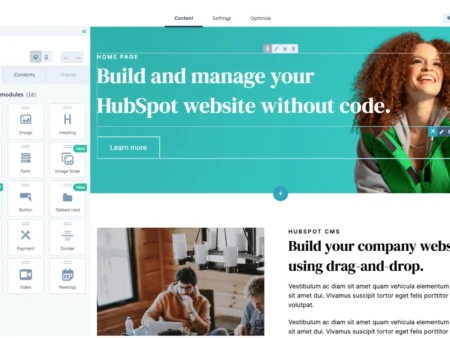Nonprofit organizations help many people. They run on donations and volunteers. A website helps them reach more people. It shares their mission. It tells stories of their work. But hosting a website can cost money. This is hard for nonprofits. Luckily, there are free options. This article will guide you through free website hosting for nonprofits.
What is Website Hosting?
Website hosting is like renting space on the Internet. It allows you to put your website online. When people type your website name, they see your content. Without hosting, your website cannot be found. Every website needs hosting. This is true for nonprofits too.
Why Nonprofits Need a Website
Websites are very important for nonprofits. Here are some reasons:
- Share your mission and goals.
- Attract new donors and volunteers.
- Provide updates on your work.
- Show success stories.
- Connect with the community.
A website can help you reach more people. It can make your organization more visible.

Credit: wpshout.com
Benefits of Free Website Hosting
Free website hosting has many benefits. Here are some key points:
- No cost for hosting your website.
- Easy to set up and use.
- Access to tools for building a website.
- Support from hosting providers.
- Ability to grow your online presence.
These benefits help nonprofits save money. They can focus on their mission instead.
Top Free Website Hosting Options for Nonprofits
Many companies offer free hosting. Here are some popular choices:
1. WordPress.com
WordPress.com is a well-known platform. It is easy to use. You can create a simple website quickly. They offer free plans for nonprofits. You can upgrade later if needed.
2. Wix
Wix is another popular option. It has drag-and-drop features. This means you can build your site without coding. Wix offers a free plan. You can create a beautiful website easily.
3. Weebly
Weebly is great for beginners. It is simple to navigate. You can create a site using templates. Weebly also has a free plan. This is good for small nonprofits.
4. Google Sites
Google Sites is part of Google. It is very easy to use. You can build a website with your Google account. It is free and has basic features. This is a good choice for simple websites.
5. Github Pages
GitHub Pages is for tech-savvy users. It allows you to host websites directly from GitHub. It is free for public repositories. This is great for those who know some coding.
How to Choose the Right Hosting Provider
Choosing a hosting provider is important. Here are some tips to help you:
- Look for user-friendly platforms.
- Check for free plans or discounts for nonprofits.
- Consider the features you need.
- Read reviews from other users.
- Think about future growth.
These tips can help you make a smart choice.
Setting Up Your Nonprofit Website
After choosing a host, it is time to set up your website. Here are steps to follow:
- Sign up for an account on your chosen platform.
- Pick a template that fits your nonprofit’s style.
- Add your nonprofit’s name and logo.
- Write content about your mission and programs.
- Include a way for people to donate or volunteer.
- Publish your website when you are ready.
These steps are easy to follow. You will have your website up in no time.
Best Practices for Nonprofit Websites
Having a great website is important. Here are some best practices:
- Keep your design simple and clean.
- Make it easy to navigate.
- Use clear calls to action.
- Update your content regularly.
- Ensure your website is mobile-friendly.
These practices help visitors find what they need. They can also encourage support for your cause.
Promoting Your Nonprofit Website
Once your site is live, you need to promote it. Here are some ideas:
- Share on social media.
- Send emails to your supporters.
- Collaborate with other nonprofits.
- Attend local events and share your site.
- Use community bulletin boards.
Promotion helps more people find your organization. This can lead to more support.

Credit: www.interserver.net
Measuring Your Website’s Success
It is important to know how well your site is doing. You can measure success with:
- Website traffic: How many people visit your site.
- Engagement: How long people stay on your site.
- Donations: How much money you raise online.
- Sign-ups: How many people join your mailing list.
Tracking these metrics helps you improve your website.
Conclusion
Free website hosting is a great option for nonprofits. It helps them create a strong online presence. Nonprofits can share their mission easily. They can attract more support. Choose the right hosting provider. Follow best practices for your website. Promote it to reach more people. Finally, track your success. With these steps, your nonprofit can thrive online.








